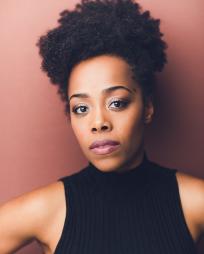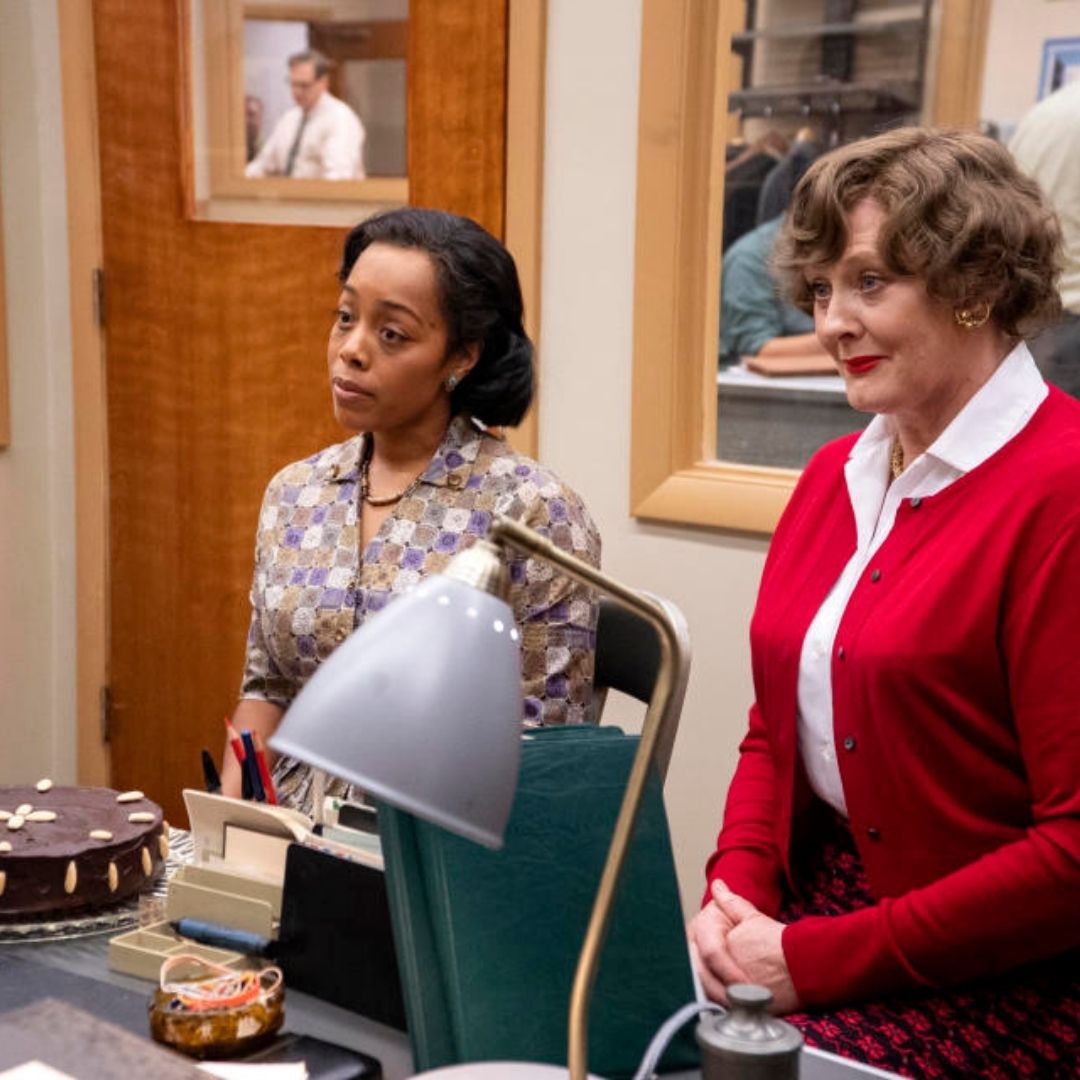The HBOMax series Julia is inspired by Julia Child’s extraordinary life and her long-running television series, The French Chef, which pioneered the modern-day cooking show. Through Julia’s life and her joie de vivre, the series explores a pivotal time in American history.
The series covers the emergence of public television as a new social institution, feminism and the women’s movement, the nature of celebrity, and America’s cultural evolution. At its heart, the series is a portrait of a loving marriage with a shifting power dynamic.
Stand out character Alice Naman is a young Black woman who is an assistant producer at WGBH public television; she is the reason in this series that Julia Child came to public television.

The amazing Brittany Bradford plays the role of Alice, and the African American Film Critics Association, of which I am a proud member, held a roundtable interview with her and below is a portion of our conversation.
AAFCA: What do you think was the purpose of making the character of Alice a Black woman for the show?
Brittany: “So, I think it’s a twofold question, right? So first with the purpose of it all, I remember when I got the audition, I was really excited about it because yeah, you don’t see this kind of representation at this time period. And also, the fact that this character is so young.
“I think if you see this character and she’s Black, she’s already fully formed. You don’t actually get to see a young Black woman who doesn’t really know or she’s coming into her own, on TV. You don’t get to see the progression.
“So, I was really excited about it and when I talked to Chris Keyser, who’s the show runner, I asked him this question because of course I don’t want to be… I feel like there is a character out there and this person exists, but as an actor, you don’t want to be tokenized. You don’t want to have to come in just to be the Black representation.
“So, I said, why do you want this character to be Black? Who is she to you? And he told me a story about family friends who were an interracial couple that met at WGBH, a Black producer and a white producer and said, no one knows the story of this Black woman.
“And a lot of the times that we hear stories, it’s just who gets to tell it? So, it’s not like these people didn’t exist, right? Sometimes we make what seems improbable impossible, and that’s part of the issue, that Alices in this generation were invisible. So he really felt a personal responsibility to bring that story to the fore and I feel that, said that same thing.”
AAFCA: What was really interesting dealing with the 1960s and dealing with Alice’s character, she’s really pushing Julia ahead, really giving her that strength and that confidence. And so, in that workplace, I was wondering, where does Alice find that strength? Because she’s seeing so many other women progress ahead, women and men, and as a person of color, she’s still at the sidelines.
Brittany: “Absolutely. I mean, I think that was why I was really excited to have characters with Virginia, Alice’s mother, and I hope that if we get a season two, that you get to see even more of her family.
“Because you see with Alice, every time she’s in the office, she’s always set back. And it’s something that we all know as Black women, right? It’s constantly hearing, “No, no, no, no.” And you still have to have some type of hope and optimism from somewhere deep down to say, I’m going to continue to go and wait or push or make my next, yes.
“So, I think that has been portrayed truthfully, but when you get to see Alice at home, you get to see where maybe she got some of the strength and then you find out that her father was a doctor. You find out that her mom was in college as well and if you think about a Black woman going to school at that time.
“So, she already has that energy as a human being. And then later you get to see in episode seven and eight when she starts to have a bit of a love interest, that’s a new part of her that opens up. I think it’s all there, it just, as we all know can fall…
“You feel too trapped and all of that kind of gets concaved in when you don’t get to express yourself fully in the workplace. So, it’s there, she just has to find the space to push it out, even when everyone is telling her to do the opposite.”
AAFCA: I loved in Julia, the way the director of the series Julia it’s (racism) is not slapping you in the face. It’s just taking you on a rollercoaster. For instance, when they’re all going out and he tells Alice, go lock up. Or just the small things that in their minds, you can see why people really think… They’re not thinking. They’re just thinking that what they’re saying and doing is normal, but it hit me, it isn’t normal. This isn’t the way it’s supposed to be.
Brittany: “I want to say thank you for that other observation, because that was my observation of Alice as well. I knew Alice wasn’t going to have a lot of language until a little bit later in the series. So, to me it was important about what she’s seeing and what she’s noticing that other people aren’t.
“It was all about where her eyes go and what I didn’t realize was happening organically but I got to see it now that I saw the full season, was there’s actually a shot in the very first time you meet Alice, where she comes in and she has the clipboard and she’s kind of covering her chest when she comes into the space and it’s the first time she meets Julia.
“And one of the last scenes that I ever did with Sarah was her coming… It was in the same exact room and going into the space and saying, ‘Hey’… I don’t know if I can even talk about it because it’s the finale, but they have that moment of what will happen next?
“And the clipboard wasn’t here, it was down at my side and chest was open. And I was like, it’s so small, but to me that’s a huge thing in the trajectory of Alice, so that meant a lot.”
There is so much more to the AAFCA conversation with Brittany that I am sure you will want to see and hear. We spoke about the food and recipes from Julia Child’s cookbook, to Alice’s relationship with her family. Visit https://aafca.aafcatvhonors.com/aafca-roundtables/ to view this and other roundtable conversations.
Until next time, keep your EYE to the sky!






